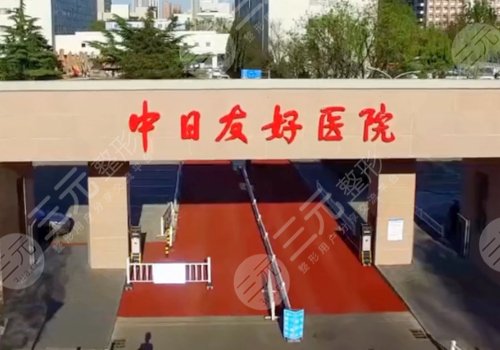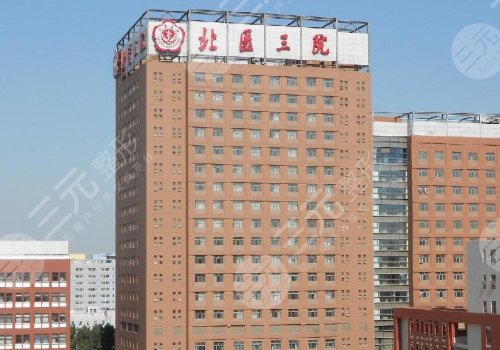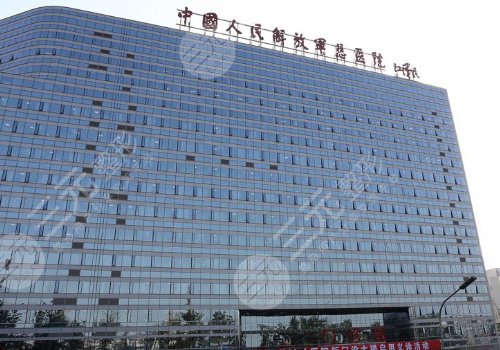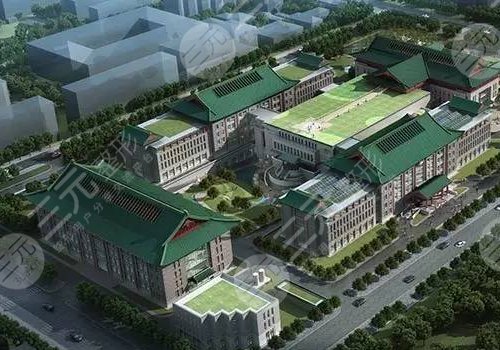Top 5 hospitals in Beijing for hair transplantation | China Japan Hospital, 301 Hospital, the Third Hospital of Beijing Medical University, etc. On the list! As the capital of China, Beijing has developed medical technology and is located in many famous tertiary hospitals. In Beijing, many beauty seekers are asking which Grade III hair transplant hospital in Beijing is better. In fact, both Sino Japanese Hospital and 301 Hospital are very powerful in hair transplantation. It not only has advanced hair transplant equipment and technology, but also has many experienced and powerful hair transplant doctors. So, which tertiary hospital in Beijing is better? This needs you to understand slowly. Let Xiao Bian make a simple inventory of the ranking of the tertiary hospitals for hair transplantation in Beijing. When doing hair transplant technology, you can compare it to see which hospital meets your psychological requirements. The following rankings are for reference only. You can understand.

Ranking of top three hospitals for hair transplantation in Beijing:
1. Hair Medical Center of Sino Japanese Hospital
2. Plastic surgery of the Third Hospital of Beijing Medical University
3. The First Medical Center of Dermatology, General Hospital of the Chinese People's Liberation Army
4. Plastic Surgery Hospital of Chinese Academy of Medical Sciences
5. Burn Plastic Surgery Department of the Fourth Medical Center of the PLA General Hospital
A detailed introduction of the Third Class A Hospital for Hair Transplantation in Beijing:
(1) Hair Medical Center of Sino Japanese Hospital
Overview: Plastic surgery of China Japan Friendship Hospital, located in the west of the hospital, is a formal specialty mainly engaged in hair disease and scalp health management. The department covers an area of more than 600 square meters, equipped with advanced professional diagnostic equipment and technology, and independent operating room and treatment room, which can provide doctors with high-quality hair transplantation and hair loss treatment.
Doctor: Feng Suyun

(2) Plastic Surgery Department of the Third Hospital of Beijing Medical University
Overview: Plastic surgery of the Third Hospital of Beijing Medical University was established in China. The company was established as a formal discipline in 1949. The department has always focused on the concept of minimally invasive and personalized surgery, and is committed to the difficult and complex plastic surgery. It has a large team of experienced plastic surgeons who can carry out plastic surgery techniques in the fields of hair transplantation, skin beauty, liposuction and weight loss.
Doctor: Xie Xiang

(3) Department of Dermatology, First Medical Center, General Hospital of the Chinese People's Liberation Army
Overview: The dermatology department of the First Medical Center of the General Hospital of the People's Liberation Army of China is a routine discipline with high reputation and influence at home and abroad. The department has accumulated rich surgical experience in long-term clinical practice. It is a set of multi-functional routine disciplines such as medical treatment, teaching, health care, and can carry out skin beauty, laser beauty, hair loss treatment and other projects.
Doctor: Meng Xianfu

(4) Plastic Surgery Hospital of Chinese Academy of Medical Sciences
Overview: The Plastic Surgery Hospital of the Chinese Academy of Medical Sciences is a formal plastic surgery center established in 1957. The hospital covers an area of more than 100000 square meters and has more than 400 beds. It can carry out plastic surgery projects in hair transplantation, laser beauty and other fields. Basically, there are more than 170000 outpatient and emergency personnel every year.
Doctors: Li Facheng, Jiang Wenjie

(5) Burn and Plastic Surgery Department of the Fourth Medical Center of the PLA General Hospital
Overview: Burn plastic surgery in the Fourth Medical Center of the General Hospital of the Chinese People's Liberation Army is a key clinical specialty in China. Since its establishment, the department has been characterized by functional reconstruction and cosmetic plastic surgery projects. There are not only many experienced plastic surgery experts and doctors, but also a variety of advanced diagnostic and treatment equipment, which can provide doctors with plastic surgery and hair transplantation and other plastic surgery projects. Since its inception, it has successfully completed many operations and trained many international students and advanced doctors.
Doctors: Li Hanlin, Liang Liming

Introduction to popular science related to hair transplantation:
1. Does hair transplantation hurt?
Hair transplantation surgery is to extract hair follicles under the effect of local anesthesia, so there will be no pain during the whole surgical treatment process. There is slight swelling and pain after the surgery, which can be alleviated generally within a week. As long as the surgery is actively cooperated, proper recovery care after the surgery can help the head grow.
2. Post transplant care
On the day after surgery, the subjects were advised to avoid working at heights and driving vehicles.
Avoid cleaning hair within three or four days after operation, which may easily cause infection. In addition, the hair can be cleaned within five days after the operation, but during the cleaning process, we must pay attention to avoid being too rough and gentle, so as not to damage the scalp hair follicles.
In terms of diet, focus on light diet, and avoid spicy and irritating food and seafood food that may lead to allergy, so as not to affect the normal recovery of wounds.
3. Where does hair grow well?
In fact, there are many treatment institutions for hair planting at present, and each treatment institution has its own unique treatment advantages in technology. Therefore, it is generally recommended that beauty lovers should pay attention to the regularity of the hospital when choosing. Secondly, there is no problem with surgical treatment, because only large hair transplantation treatment institutions can do a good job in the preoperative design of various schemes in surgical treatment, to better avoid the risk of surgical accidents, and the treatment effect has a certain reputation. Therefore, Subjects can make targeted choices according to their actual situation.

























